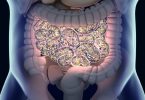The global plastic and aesthetic surgery industry is booming like never before, with researchers predicting a global worth of $43.9 billion by 2025. The most hotly solicited surgeries are clearly defined in the United States: breast augmentations still hold the number one spot, followed by liposuctions, rhinoplasties, eyelid surgery, and tummy tucks. Research has shown that cosmetic surgery boosts confidence, which is one reason why patients are more interested in body reshaping and facial rejuvenation. In this post we focus on three trends that are making specific surgeries more efficient and safe, and/or reducing recovery time.
Opt for Water Jetstream Liposuction and Coolsculpting
In the past, plastic surgeons couldn’t work as precisely as they can today, because they used to have to apply a large amount of an ‘infiltration solution’, which was then suctioned out along with fat using negative pressure. Water Jetstream liposuction enables doctors to apply water and suction out fat simultaneously; because they can apply a smaller amount of water to the precise areas they need, they can obtain a better picture of the area to be treated and the tissue sculpting process becomes more precise. Water Jetstream liposuction enables greater efficiency but causes less pain and requires a shorter down time. This technique is used in tummy tucks to eliminate excess loose skin and fat, as well as a plethora of procedures – including vaginal rejuvenation and pubic mound reduction.
Consider Fat Freezing
Those who do not wish to undergo surgery yet achieve similar results, meanwhile, can opt for Coolsculpting – and FDA-approved method of ‘freezing’ fat cells, which are eliminated through the urine during a course of several weeks. The procedure, which involves the placement of suctioning applicators that freeze the fat cells specific parts of the body, is carried out with just a local anaesthetic gel and patients can immediately return to work after a session (i.e. there is zero down time). Coolsculpting is ideal for resistant fat that cannot be ‘exercised away’. Areas treated include the love handles, tummy, upper arms, back, and ‘double chins’.
Plan Your Nose Reshaping Surgery alongside Your Doctor
A paper published in the June 2018 issue of the journal Plastic and Reconstructive Surgery, reported that computer-designed, 3D-printed models will soon be a useful way for doctors who plan and carry out rhinoplasties (or ‘nose jobs’). To date, doctors usually present patients with computer-designed imagery of the final look, but a 3D-printed model enables doctors to achieve far greater precision while they are undertaking the procedure. Patients also benefit at the planning stage, because a 3D model allows tactile appreciation and allows them to view their future nose shape from a number of different angles.
Consider Composite Breast Augmentation
To increase breast size, women often go straight for a breast augmentation using implants. However, the latest techniques involve a blend of fat transfer and implants, for a more natural result. Water Jetstream technology is used to obtain fat from an undesired area (e.g. the tummy), which is then transferred to the breast area. This is a challenging technique that involvings delicate micro-grafting work, but the results are certainly impressive.
We have mentioned just a few ways that you can benefit from cutting-edge techniques in the world of plastic and aesthetic surgery. Reduced recovery periods, more natural results, and accurate planning are some reasons why patients are increasingly likely to choose surgery to solve an issue they cannot change on their own.







